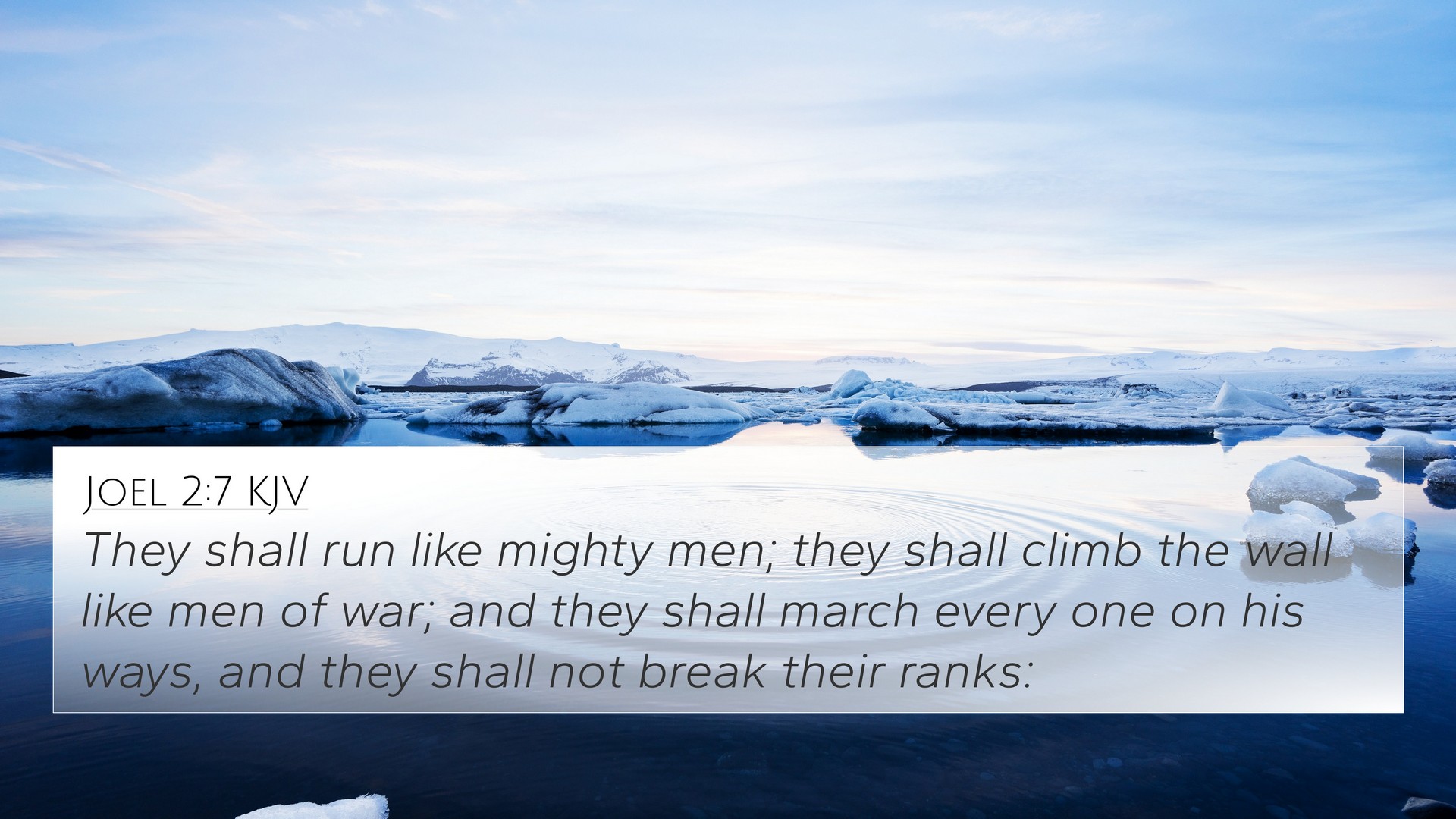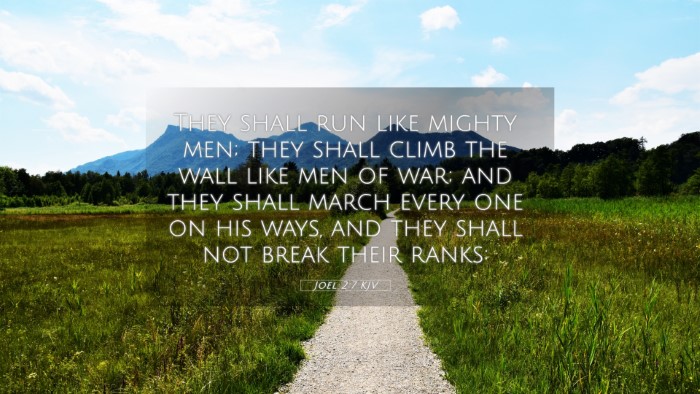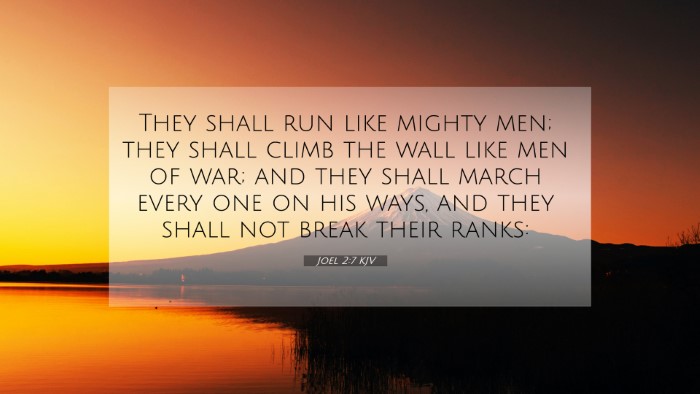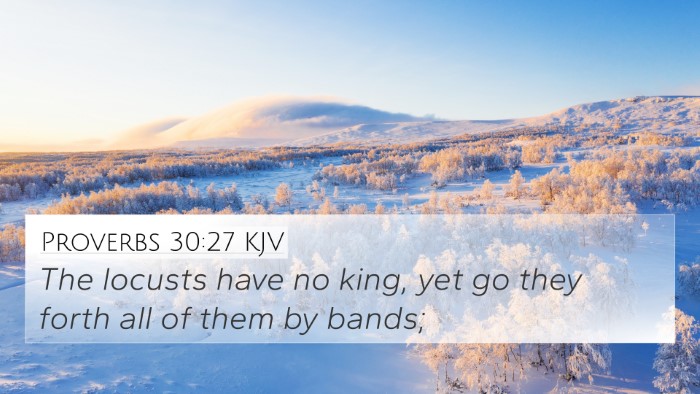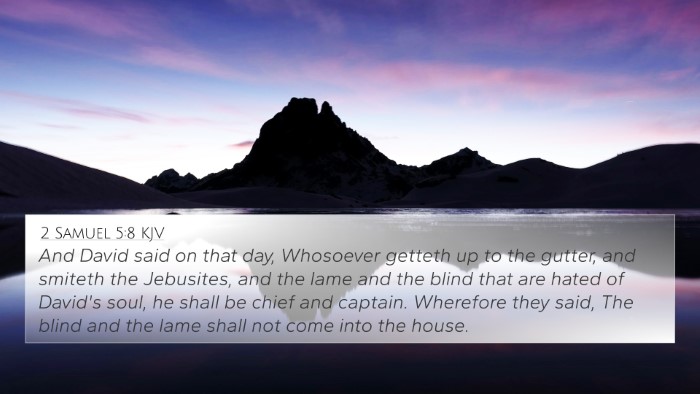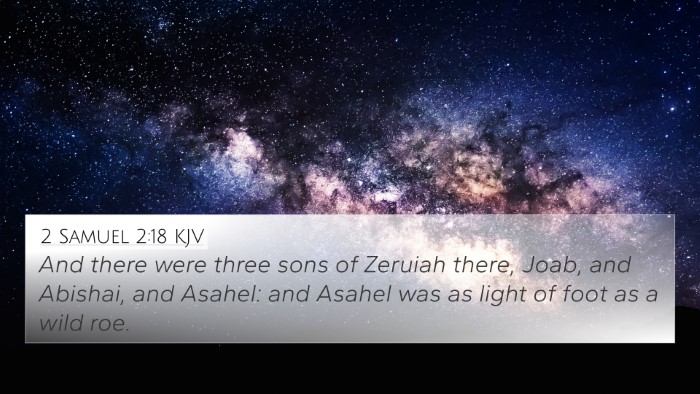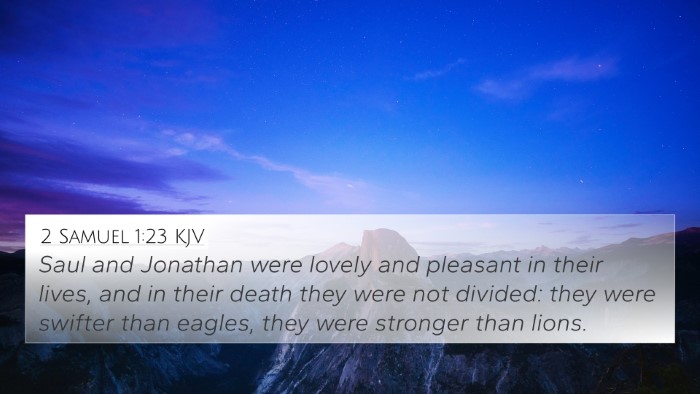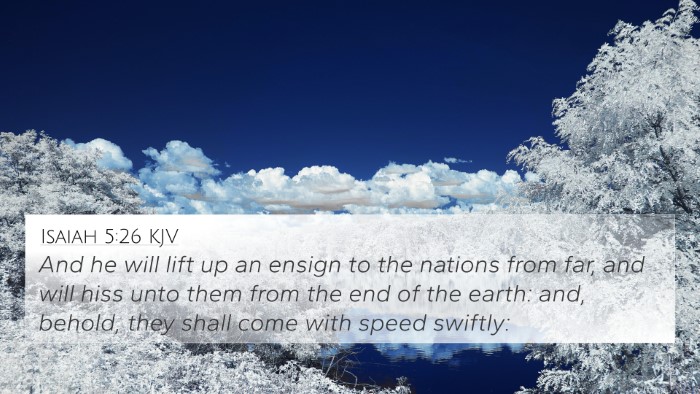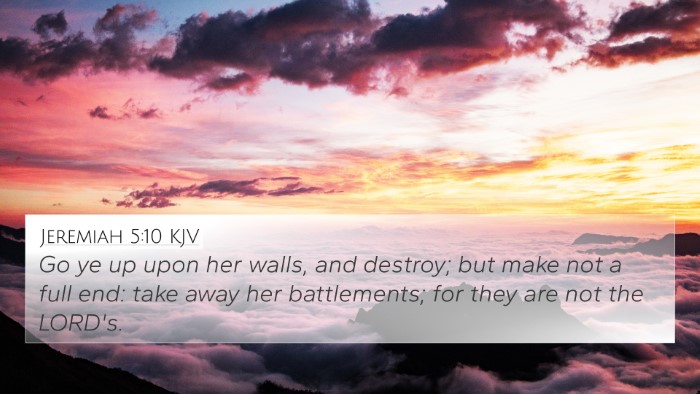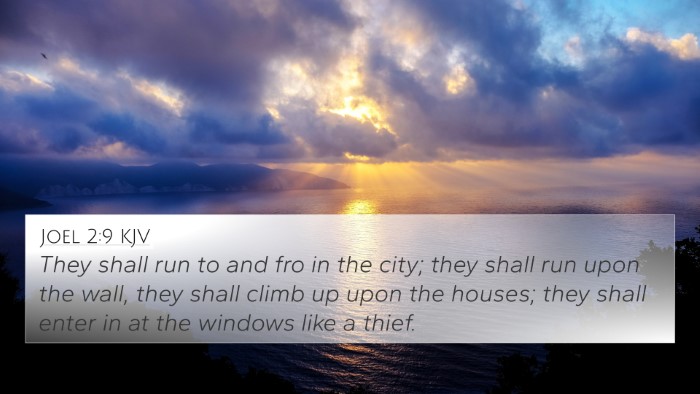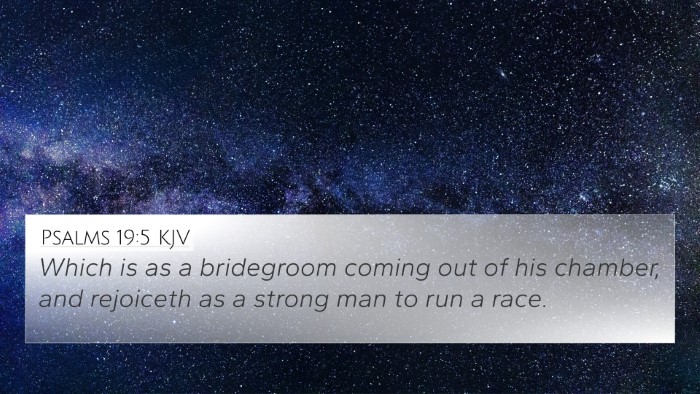Understanding Joel 2:7
Joel 2:7 describes a military invasion as a metaphor for divine judgment, portraying the fierce determination and strength of the invading forces as they advance in battle formation. This verse states:
"They run like mighty men; they climb the wall like men of war; they march every one on his ways, and they turn not aside from their paths."
Context and Significance
The book of Joel addresses the theme of judgment and restoration. The invasions described are seen not just as physical armies but spiritual warnings to God's people. Understanding this verse is crucial for grasping the entirety of Joel’s message about repentance and divine mercy.
Commentary Insights
Matthew Henry's Commentary
Henry emphasizes the organized and relentless nature of the invading forces; they are likened to "mighty men," illustrating their strength and discipline. He draws attention to their unity of purpose, highlighting that just as they do not turn aside from their path, so should God’s people remain steadfast in their pursuit of Him.
Albert Barnes' Commentary
Barnes notes that the way the soldiers advance reflects God's power. He suggests that the text serves as a warning to those who are complacent and neglect the seriousness of their spiritual state. The image of climbing walls suggests overcoming barriers, a metaphor for the judgment of God that knows no bounds.
Adam Clarke's Commentary
Clarke provides historical parallels, citing ancient armies and their tactics. He underlines the intentionality of their movements, implying that they operate with divine authority, underscoring that God's judgment is inescapable. Clarke explains that this passage correlates with the spiritual desolation that comes when people stray from their faith.
Bible Cross-References
This verse connects with various other scriptures, providing depth through cross-referencing:
- Amos 1:2 - God's roaring from Zion in terms of impending judgment.
- Isaiah 5:26 - The call to nations to come near, reflecting divine summons for judgment.
- Jeremiah 50:30 - A portrayal of the mighty warriors, serving to exemplify the power of destruction.
- Revelation 9:7 - Using similar imagery to describe locusts as divine instruments of judgment.
- Psalm 44:3 - Allusion to past victories that are now reversed due to Israel's unfaithfulness.
- Matthew 24:7 - Wars and rumors of wars as signs of the end times, paralleling eschatological judgment.
- 2 Chronicles 20:15 - The battle belongs to the Lord, emphasizing divine authority over events.
Thematic Connections
This verse exemplifies numerous themes found throughout scripture:
- The call to repentance before impending judgment.
- Divine sovereignty over nations and armies.
- The need for steadfastness in faith amidst trials.
- Warning against complacency in spiritual life.
Cross-Referencing and Analysis
Using tools for Bible cross-referencing, one can observe how themes in Joel resonate with both the Old Testament and New Testament. The Bible concordance can help identify further connections between texts, such as:
- The linkage between Joel’s prophecies and the teachings of Jesus concerning judgment.
- Connections between the prophetic calls for repentance and the apostolic messages in the letters of Paul.
- Identifying parallels between the judgments in the Old Testament and the final days discussed in Revelation.
Conclusion
Joel 2:7 serves as a profound reminder of the seriousness of divine judgment while also emphasizing the need for unyielding steadfastness in faith. By engaging in comparative Bible verse analysis, one continues to uncover the rich tapestry of interconnected scripture that deepens understanding and invites transformative reflection.
